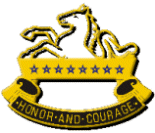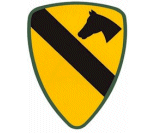SERMON OUTLINE 011--28 JAN 2007
FOB Paliwoda
28JAN07
Scripture
1 Corinthians 13
Timeline
1:10-4:21 Unity of the Church
5:1-6:8 Immorality of certain church members and disputes among fellow Christians
6:9-20 Paul denounces sexual sin
7:1-40 Addressing the issues and problems of marriage
8:1-11:2 Be sensitive to other believers
11:3-14:39 Worship and spiritual gifts
11:17-26 Unifying power of the Lord’s Supper
11:27-34 We must prepare ourselves to receive the body and blood of Christ
12:1-11 The Spirit unites through its gifts…it does not divide
12:12-31 Many members, one body.
13:1 Eloquent but not compassionate
13:2 Prophetic but not wise
13:3 Generous but not genuine
13:4-7 Paul’s definition of love:
Love is patient
Love is kind
Love is humble
Love is considerate
Love is not paranoid
Love seeks truth
Love seeks goodness
Love is hopeful
Love is faithful
13:8 Prophecies, tongues, and knowledge will pass away, but love will remain
13:10 Only the perfect will remain
13:11 It is time to grow up
13:12 We will finally see ourselves as Christ sees us
13:13 Summary: Love is greater than faith and hope
14:1-5 Prophecy is more important than speaking in tongues
14:6-19 Tongues must be interpreted
14:20-25 Tongues are a sign to unbelievers
I. Introduction
A. Illustration: preparing for our upcoming mission. I was war-gaming with the staff. But as we continued along I discovered that while I knew of the terms I could not fully understand or comprehend what we could or would do.
B. The church in Corinth was beginning to grow focused on the words than on the content of the Gospel. They were more concerned with what you knew than who you are. Illustration: finding someone to help me at PSB. We tend to make the mistake of equating intelligence with rank.
C. We need to reclaim love. Love has been so overused that we no longer know what the word means. This is exactly what Paul is doing in this chapter. He educates the church that there is a difference between knowledge (γινώσκω) and understanding (ἐπιγινώσκω).
D. Illustration: overuse in the incorrect context. We use this as a wedding Scripture without understanding what it is calling us to do. We can only know God and one another when we fully comprehend the sacrifices it takes to sustain a marriage.
II. Idolatry-Ministry Without Love (1 Corinthians 13:1-3)
A. Unfortunately, this is what love is like for too many Christians. It is about the pomp and circumstance of faith, not the day to day discipline of maintaining your witness.
B. Oftentimes we compete for attention, or we direct our love towards an idol.
C. Definition of an idol is something that is unchanging and static. We can even make God an idol if we worship the wrong version of Him. We worship idols because we can control them.
D. Kathleen Norris' Amazing Grace: An Alphabet of Faith (p. 88-90): “Idolatry makes love impossible. It is much safer to love an idol than a real person who is capable of surprising you, loving you and demanding love in return, and maybe one day leaving you.”
E. Lack of love in the battalion. Illustration: lack of courtesy, or love, in the battalion
III. What Is Christian Love (ἀγαπάω)? (1 Corinthians 13:4-7)
A. What it is not
1. Unconditional acceptance
2. Unconditional tolerance
3. Unlimited bitterness
4. Arbitrary emotions
B. How can we love like this? It must be learned. We are learning to do that over here. Illustration: The CNN reporter embedded with the 1st Marine Battalion
IV. Love Lasts (1 Corinthians 13:8-13)
A. v12: perhaps one of the most undervalued verses in Scripture. We will finally see ourselves as Christ, as God sees us.
B. Few have been given genuine examples of Christian love. Illustration: for the first time in the history of the census, more women are single than are married.
C. We see living together as an acceptable alternative to marriage.
D. Some only see disappointment in love.
V. Conclusion (John 21:15-19)
A. We can only discover the true meaning of the Gospel by living it out in a community.
B. This is the secret of evangelism. It is not in great arguments, or shows of emotion, or even demonstrations of miracles…it is in how we love each other, both in and out of the Church.
C. This type of love is difficult; it should be. Illustration: Stanley Hauerwas stating that we should marry someone we do not know.
D. Faith and hope find their origins in love. Because we love God, we can love our neighbor and ourselves. Because we love God, we can have faith and hope.
Instrument of Peace
Lord, make me an instrument of Your peace.
Where there is hatred, let me sow love;
where there is injury, pardon;
where there is doubt, faith;
where there is despair, hope;
where there is darkness, light;
and where there is sadness, joy.O Divine Master,
grant that I may not so much seek
to be consoled as to console;
to be understood as to understand;
to be loved as to love;
for it is in giving that we receive;
it is in pardoning that we are pardoned;
and it is in dying that we are born to eternal life.--St. Francis of Assisi




